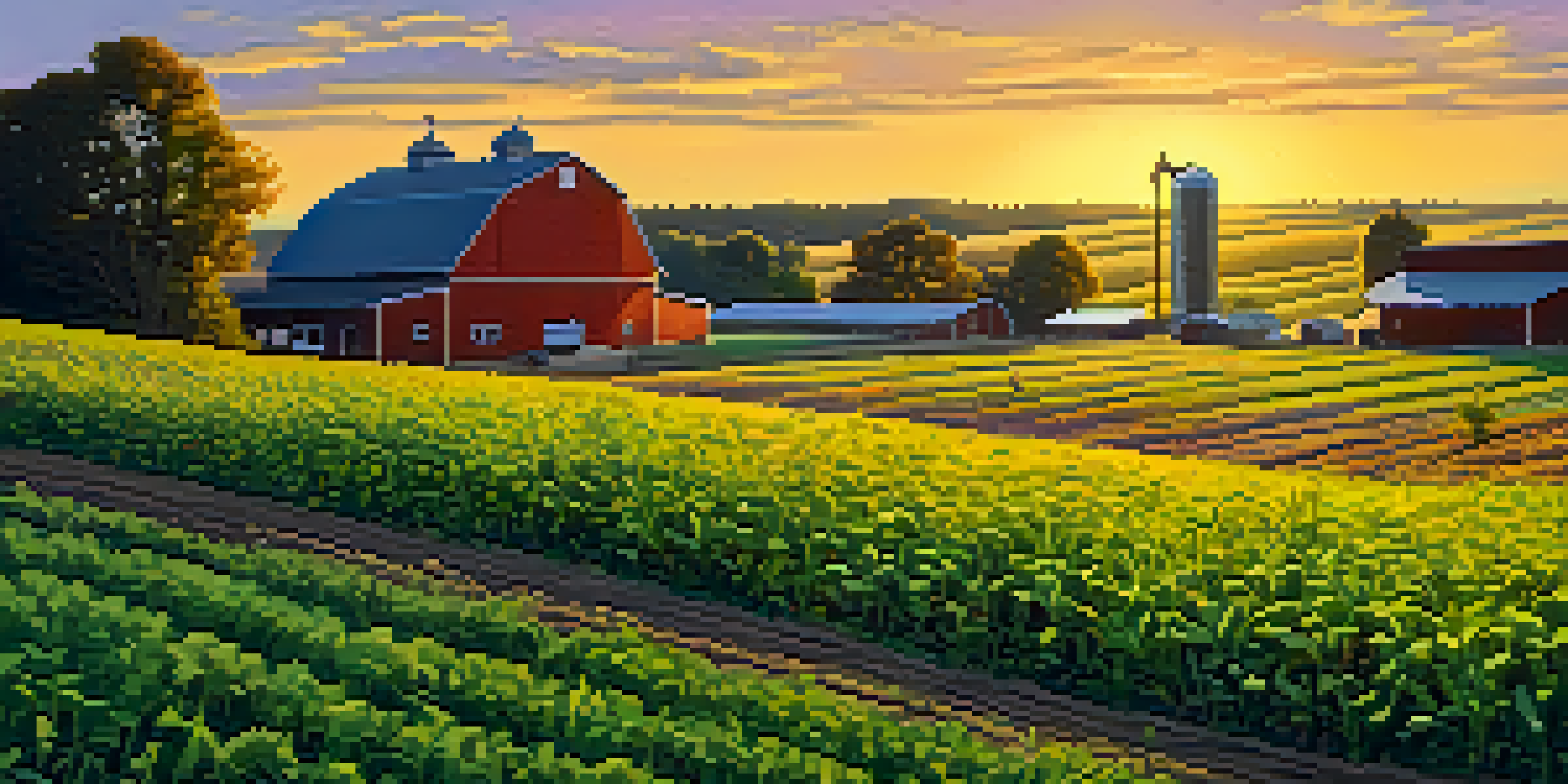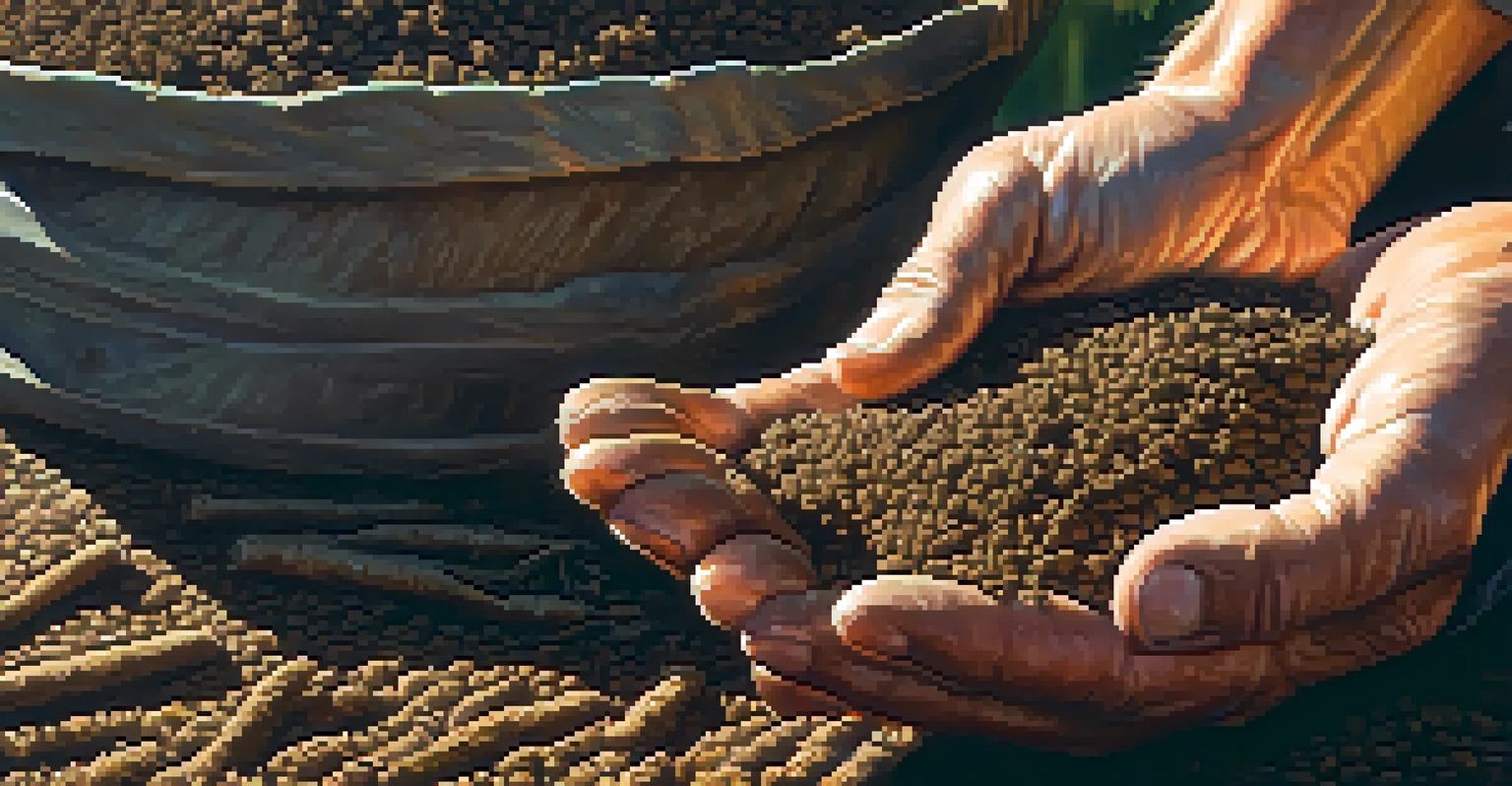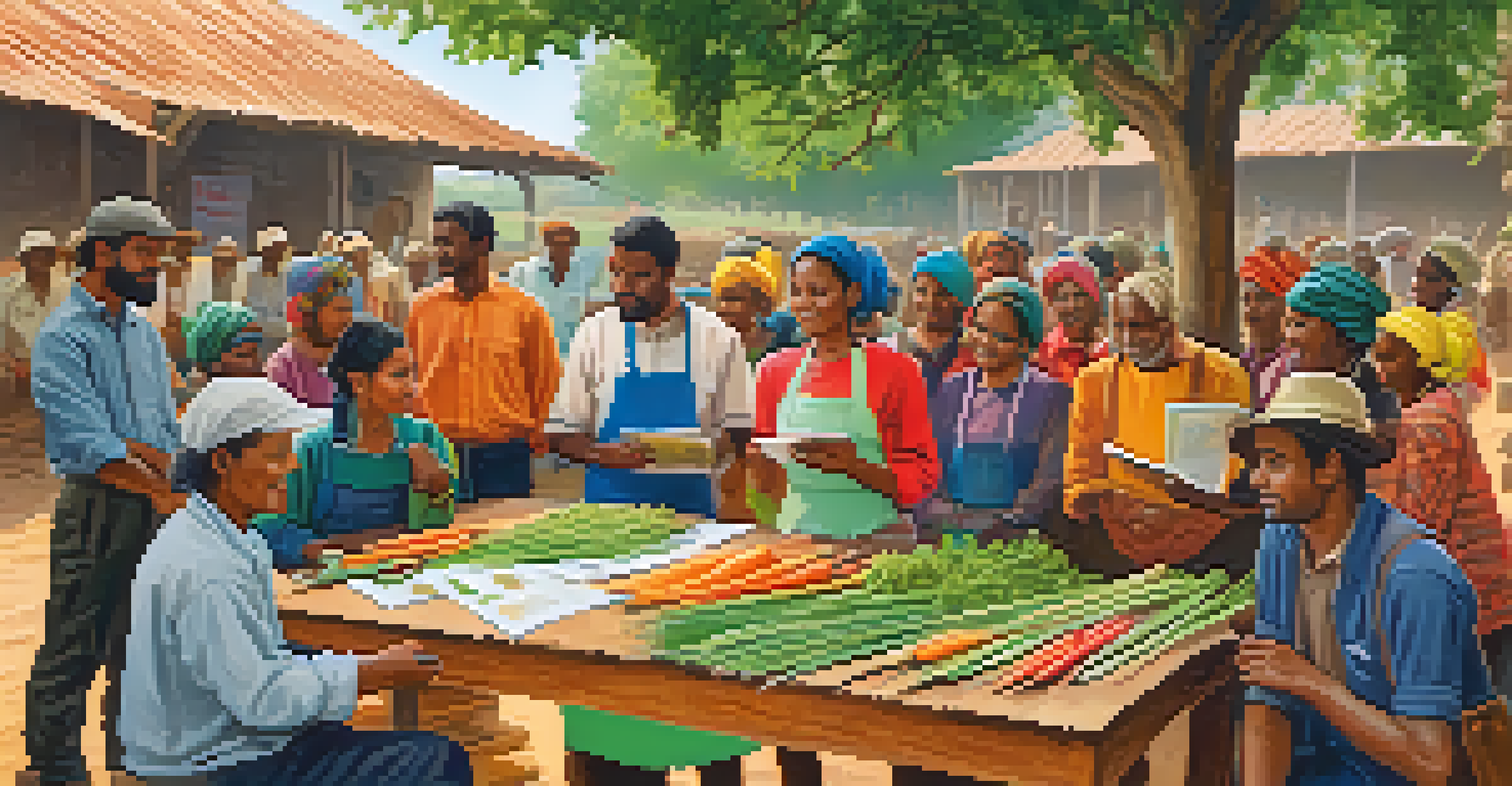Michigan State's Contribution to Sustainable Farming Practices

Introduction to Sustainable Farming at Michigan State
Michigan State University (MSU) has been a pioneer in sustainable farming since its inception. With a commitment to innovation and environmental stewardship, MSU has developed programs that prioritize ecological balance and resource efficiency. This approach not only benefits farmers but also contributes to the well-being of the entire community.
Sustainable agriculture is the key to ensuring our future food security while protecting the environment.
Sustainable farming practices aim to meet our present food needs without compromising the ability of future generations to meet theirs. By focusing on practices such as crop rotation, organic farming, and integrated pest management, MSU helps farmers manage their land responsibly. This holistic view of agriculture is essential for fostering long-term sustainability in Michigan and beyond.
Through research, outreach, and education, MSU empowers farmers to adopt these practices. The university's dedication to sustainability reflects a broader commitment to preserving Michigan’s natural resources and enhancing food security for all.
Innovative Research Initiatives at MSU
At the heart of MSU's contributions to sustainable farming is its extensive research initiatives. The university conducts cutting-edge studies that focus on soil health, water conservation, and crop resilience. By exploring how different farming methods impact the environment, MSU provides valuable insights that help shape best practices in agriculture.

One of the key research areas is the study of cover crops, which improve soil quality and reduce erosion. Researchers at MSU have identified various cover crop species that can thrive in Michigan's climate, offering farmers practical options for enhancing their fields. These findings not only boost productivity but also contribute to healthier ecosystems.
MSU's Role in Sustainable Farming
Michigan State University is a leader in sustainable farming through innovative research, education, and community engagement.
Additionally, MSU collaborates with local farmers to test and implement these research findings in real-world settings. This partnership ensures that the research is relevant and applicable, helping farmers transition to more sustainable practices effectively.
Educational Programs Promoting Sustainability
MSU also plays a crucial role in educating the next generation of farmers and agricultural professionals. The university offers a variety of programs and courses focused on sustainable agriculture, ensuring that students are equipped with the knowledge and skills needed for modern farming. This educational foundation is essential for fostering a culture of sustainability in the agricultural sector.
The farmer is the one who feeds us all, and we must support their efforts to farm sustainably.
Workshops, seminars, and field days are regularly organized to provide hands-on learning experiences. These events allow farmers to interact with experts, learn about new technologies, and discuss challenges they face in implementing sustainable practices. By fostering a community of learning, MSU encourages continuous improvement and innovation.
Moreover, MSU's outreach efforts extend to farmers of all experience levels. Whether through online courses or local workshops, the university is dedicated to making sustainable farming knowledge accessible to everyone, reinforcing the idea that sustainability is a collective effort.
Community Engagement and Partnerships
Community engagement is another cornerstone of MSU's approach to sustainable farming. The university actively collaborates with local agricultural organizations, government agencies, and non-profits to promote sustainable practices. These partnerships help amplify the impact of MSU's research and educational initiatives, creating a broader network of support for local farmers.
By working together, these organizations can share resources, knowledge, and expertise, leading to more effective solutions for sustainable farming challenges. For example, MSU has partnered with local conservation groups to develop programs that protect water quality and promote biodiversity in agricultural landscapes.
Focus on Soil and Crop Health
Research initiatives at MSU prioritize soil health and crop resilience, utilizing practices like cover cropping and Integrated Pest Management.
Such collaborations not only benefit farmers but also enhance community resilience. When farmers adopt sustainable practices, they contribute to healthier ecosystems, which in turn support local economies and improve the quality of life for residents.
Sustainable Practices in Crop Production
MSU has been instrumental in promoting sustainable practices in crop production, focusing on methods that reduce environmental impact. Techniques such as precision agriculture use technology to optimize field-level management regarding crop farming. This not only increases efficiency but also minimizes the use of chemicals and resources, aligning with sustainability goals.
Another significant practice is Integrated Pest Management (IPM), which combines different strategies to manage pests while minimizing the use of pesticides. MSU researchers have developed IPM guidelines tailored for Michigan farmers, emphasizing the importance of monitoring and understanding pest populations. This proactive approach helps maintain ecological balance and protects beneficial insects.
These sustainable practices aren't just beneficial for the environment; they also enhance economic viability for farmers. By reducing input costs and improving yields, farmers can achieve better profitability while adhering to sustainable principles.
Livestock Management and Sustainability
Sustainable farming at MSU extends beyond crops to include livestock management. The university emphasizes practices that ensure animal welfare while minimizing environmental impact. For instance, rotational grazing is encouraged as it promotes soil health and reduces overgrazing, allowing pastures to recover naturally.
Moreover, MSU conducts research on feed efficiency and manure management, critical aspects of sustainable livestock farming. By optimizing these factors, farmers can reduce waste and greenhouse gas emissions, contributing to a more environmentally friendly approach to animal husbandry.
Future Innovations in Agriculture
MSU is committed to exploring new technologies and adaptive strategies to address climate change and enhance food security in Michigan.
Education around sustainable livestock practices is vital, and MSU provides resources and training to help farmers implement these techniques. This holistic approach to agriculture supports both economic stability for farmers and the health of the ecosystems they operate within.
Future Directions for Sustainable Farming in Michigan
Looking ahead, Michigan State University is committed to advancing sustainable farming practices to meet the challenges posed by climate change and food security. Ongoing research will focus on developing adaptive strategies that can withstand shifting weather patterns and market demands. This proactive mindset is critical for ensuring the resilience of Michigan's agricultural sector.
In addition to research, MSU is exploring innovative technologies like vertical farming and aquaponics. These approaches can maximize space and resources, making them particularly relevant in urban areas where traditional farming may be challenging. By embracing new technologies, MSU is positioning itself at the forefront of sustainable agriculture.

The future of sustainable farming in Michigan hinges on collaboration, education, and innovation. With institutions like MSU leading the charge, there is hope for a more sustainable agricultural landscape that benefits both farmers and the environment.